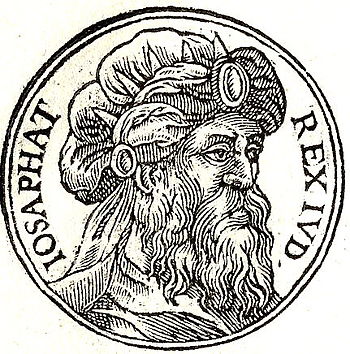- Jehoshaphat – The Good King
- Jehoshaphat – His Legacy
- Jehoshaphat – Faulty Alliances

As we have passed the Christmas season, and believe that the magi of old did not appear at the manger, but at some point later, I would encourage us to look at another set of kings—three kings in the Old Testament with whom God was pleased. These three kings of the many have a story to tell us and a path for us as we endeavor to walk in the ways and will of God.
The first of these kings is one of my personal favorites. Jehoshaphat was the son of Asa—one of the good kings of Israel. His father’s legacy was one of fighting the king of Israel, removing the Asherah—the poles that were being worshiped in the high places of Israel—and purging idol worship from the land. He followed after God like King David, and left for his son a land that was following after God.
Jehoshaphat the Good King (2 Chronicles 17)
Jehoshaphat had a good foundation from which to build– his father Asa. The Bible records that Jehoshaphat’s father was also a good king of Judah, and this played a large part in shaping his son. In fact, Jehoshaphat when further than his father, removing the high places and sending his officials out to the people to teach the law.
High Places
High places were not always bad things. Before the temple was built by Solomon, high places (literally a place higher than others) were used to worship God. Solomon’s request for wisdom and knowledge was made from a high place. It’s just that after the temple was built, God told His people to worship Him there only. Well, that and the fact that people were putting idols like golden calves, the serpent that Moses lifted in the wilderness, Astherahs and all other sorts of idols in these places.
This was a big thing because with the cycle of bad kings and then good kings, many people forgot what God had taught them. When a wicked king reigned, all about God would be “lost”– even though they would have the temple to that God in their midst.
Because Jehoshaphat sought after God and told his people about God, God blessed him and he became great. Many of the surrounding countries were bringing tribute to him, as they did the kings that followed after God.
This leads me to my first question:
What kind of foundation are we laying?
The lives we lead have a direct effect on where our children start. They are watching us and they get to inherit where we leave off. Since more is caught than taught, we need to guard how we behave and what we say. Just like Jehoshaphat continued the tradition of his father as he saw he was to do, our kids need to see us as Christ-followers so that they may grow likewise.
Jehoshaphat’s Reforms (2 Chronicles 19)
Growing on the commitment that he had to teaching the people the Word of God, the next logical thing was to judge based on that knowledge. In 2 Chronicles 17, Jehoshaphat sent out people to teach the word. In chapter 19, he commissioned Levites heads of families to judge the people based on the Word of God. This is the right order– training and then accountability.
The Middle East was known for corrupt judges, hence the many passages in the Bible telling people to:
- Agree before getting to court – Matthew 5:25
- Judge righteous judgment – John 7:24
- Believers judge other believers – Matthew 7:1
Part of the job of the leader is to make sure that people are treated fairly and that includes knowing the rules and then having an impartial arbiter. Jehoshaphat did both of these by educating the people and then making sure to enforce God’s law. This also led to blessings from God.
How do we train and judge?
To follow after God, we need to follow this routine– train and then judge on the training. That doesn’t mean that we should go around looking for faults. While Jehoshaphat was within his rights as king to have people exercise judgment, as co-heirs with Jesus that understand that we are all sinners saved by grace this doesn’t give us a license to spend our days chasing people down proclaiming all are sinners. So how does this apply to us?
In that Matthew 7 passage earlier, we are admonished to approach one another in humility, in mercy. When we see a sin, we are not to approach as holier than the person, but as one coming alongside to bear one another up.
We see in the Bible that this is our mission, to help build disciples. This mission of training and accountability is wrapped up in what Jehoshaphat did. It’s not an option for the Believer, but a challenge for him to follow in the ways of the Master. Like Jesus, who with the woman caught in adultery, we can aid the sinner while not condoning the sin. We need to see sin as awful and wrong, but see the love of Christ toward the person that is trapped.
Justice demands that we declare sin as sin. Mercy allows for a second chance.

One thought on “Jehoshaphat – The Good King”